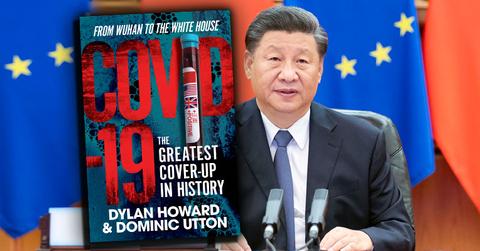 EXCLUSIVE
EXCLUSIVESocial Media Cover-Up: New Findings Reveal How China Censored Media, Spread COVID

Oct. 9 2020, Updated 9:40 p.m. ET
Hundreds of thousands of lives would have been saved if Chinese citizens were allowed access to uncensored social media. Online freedom would also have averted mass unemployment and the shattering global economic downturn caused by the pandemic.
Instead, the Chinese government used a cynical social media crackdown to cover up fears shared online by clinicians as they fought the first cases of Covid-19 in Wuhan. The blackout ultimately gave the virus time to spread to the outside world.
Authors of the first global investigation of the coronavirus pandemic conclude that if hero Wuhan Central Hospital physician, Dr. Li Wenliang, had access to encrypted social media platforms, news that the novel disease was spreading between humans would have reached the West in late December 2019, months before Chinese officials finally acknowledged how serious the virus was.
COVID-19 COVER-UP UNEARTHED IN NEW BOOK AMID WHITE HOUSE HEALTH SCANDAL
Instead, the diligent medical worker, who contracted the disease and died of it on February 7 this year, tried to alert colleagues in other provinces who were part of a supposed private group using a platform called WeChat. He sent his message at the end of December 2019, when he was alerted to cases of a virulent new respiratory illness that had been treated in his hospital in the proceeding weeks and that appeared to pass between humans.
Details of the messages Dr. Li sent are revealed in the new book, COVID-19: The Greatest Cover-Up in History — From Wuhan to the White House, by authors and journalists Dylan Howard and Dominic Utton. It provides the first detailed investigation into the pandemic and is set to be published before the election by Skyhorse Publishing.
INSIDE THE EXPLOSIVE WHITE HOUSE COVID-19 CRISIS — EVERYTHING WE KNOW
Want OK! each day? Sign up here!
In the book, the authors trace back the digital trail to Dr. Li’s first concerned message, sent at 17.43 to a group of his medical school classmates. WeChat is China's biggest and most comprehensive messaging and social media app, with a billion monthly users. It is assumed the Chinese government censors and monitors the entire system.
Dr. Li believed the cases in the hospital were a form of SARS. His message read: "Seven confirmed cases of SARS were reported from Huanan Seafood Wholesale Market." He also posted shots of the patient's diagnosis report and CT scan image, before adding: "They are being isolated in the emergency department of our hospital."
Ominously, 59 minutes later, he received a chilling warning that WeChat was not a secure platform. "Be careful," said the message, "or else our chat group might be dismissed."
JIMMY KIMMEL, SOPHIA BUSH AND MORE CELEBS REACT TO TRUMP‘S COVID-19 DIAGNOSIS
But Li continued to post, confirming that the illness was caused by an unknown strain of coronavirus.
He was aware of the danger and wrote: "Don't circulate the information outside of this group, tell your family and loved ones to take caution."
The State soon noticed however, and on January 1, Wuhan police announced that eight internet users were being punished for "spreading rumors." Dr. Li was interrogated and censuring for "making false comments on the Internet." He was made to sign a letter promising not to do it again. Officials said his messages were false.
CANNED! CORONAVIRUS CHAOS CAUSES SHUTDOWNS AROUND THE WORLD
Howard and Utton reveal that the cover-up did not end with Dr Li. They publish research by Toronto-based Citizen Lab, which found that from January 1, WeChat started to censor keywords about the coronavirus. During the month the platform censored 132 keyword combinations. During the first 15 days of February a further 384 new keywords were added to the blacklist. These included references to government policies on handling the epidemic, and responses to the outbreak in Hong Kong, Taiwan and Macau. References to Dr Li were also censored. Chinese live-streaming site, YY. also blacklisted 45 keywords from its platform, including the terms "Unknown Wuhan pneumonia" and "SARS outbreak in Wuhan."
As the COVID-19: The Greatest Cover-Up in History — From Wuhan to the White House authors say: "History was being edited and rewritten. When Dr. Li Wenliang sent his fateful WeChat message, nobody had heard of COVID-19 — and the Chinese state seemed determined to keep it that way."


